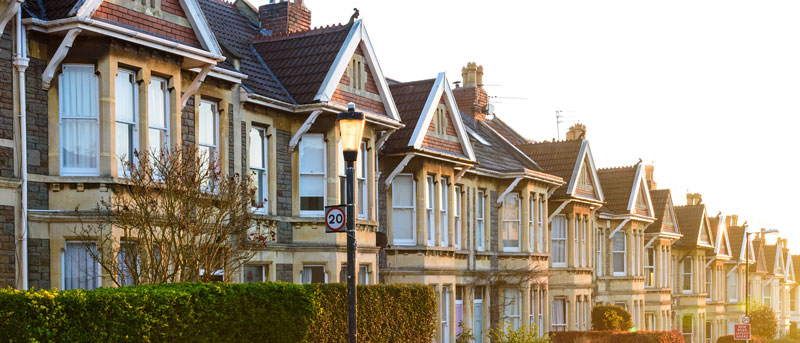11
February 2019
House Prices Down 2.9%, Halifax Reports
House prices in the UK fell by 2.9% last month, according to Halifax’ latest report.
The January decrease comes after 2.5% growth in December 2018. House prices grew by 0.8% in the year to January, down from the 1.3% annual rise seen in December. This is the second time in the last three years that house prices have seen a monthly drop in the first month of the year. The average house price in the UK now stands at £223,691 by Halifax’ calculation.
“Attention will no doubt be drawn towards the monthly fall of -2.9% from December to January, the second time in three years that we have seen a drop as a new year starts,” said Russel Galley, managing director at Halifax.
“However,” he added, “the bigger picture is actually that house prices have seen next to no movement over the last year, with annual growth of just 0.8%.
“This could either be viewed as a story of resilience, as prices have held up well in the face of significant economic uncertainty, or as a continuation of the slow growth we’ve witnessed over recent years.”
Analysts have suggested the uncertainty surrounding Brexit is putting off potential buyers, and that the outlook of the UK’s housing market in 2019 will depend on the transition the country faces after we leave the EU on March 29.
“January is often a tough month, in which sellers who have failed to shift their home in the previous year typically cut the price in order to drum up interest,” said Jonathan Hopper, managing director of Garrington Property Finders. “But the confidence-sapping uncertainty of Brexit is getting worse, not better, and the next few months will be decisive.”
The significant role of Brexit in the slowdown of the housing market was reiterated by Mark Harris, chief executive of mortgage brokers SPF Private Clients. “Flat growth is probably the best we can hope for, given the current tricky political situation we find ourselves in,” said Harris. “Brexit has caused a slowdown in purchase activity as would-be buyers sit on their hands, waiting for the outcome before committing to something as major as buying a new home.”
Russell Galley said: “There’s no doubt that the next year will be important for the housing market with much of the immediate focus on what impact Brexit may have. However, more fundamentally it is key underlying factors of supply and demand that will ultimately shape the market.
“On the supply side the most constraining factor to the health of the market is the shortage of stock for sale, although this does support price levels. On the demand side we see very high employment levels, improving real wage growth, low inflation and low mortgage rates. All positive drivers tempered by the challenges of raising deposits. On balance therefore we expect price growth to remain subdued in the near term.”
However, some analysts are holding out hope that the housing market could yet see an upturn after the initial impact of Brexit.
Andy Soloman, founder and CEO of business growth advisers Yomdel, said: “The coming months are likely to bring some small green shoots of price stability and once we emerge from our Brexit blanket in to the cold light of day having reached an agreement, further stability and upward growth should return to the market.”





